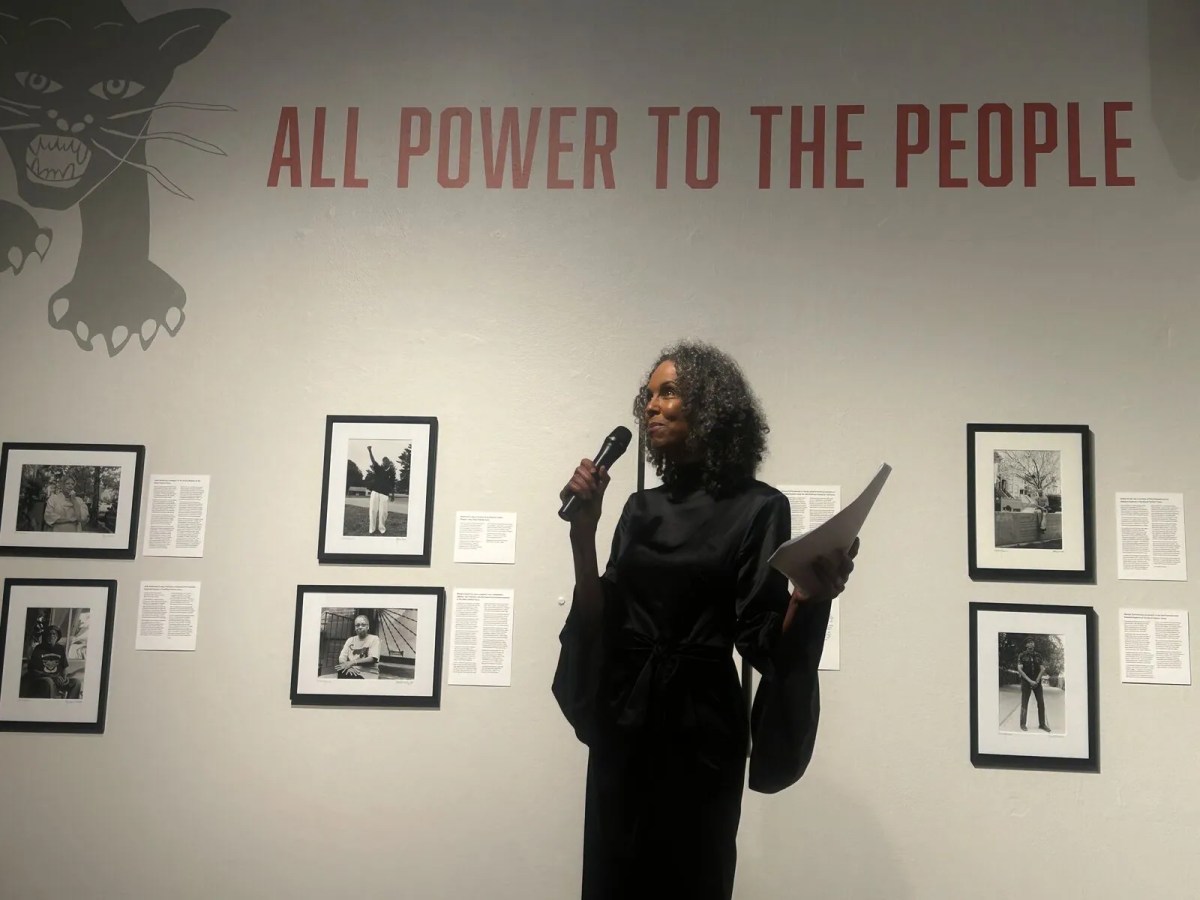A new exhibit documenting the radical legacy of the Black Panther Party’s Oakland Community School opened this month in downtown Oakland. Throughout 2024, the Black Panther Party Museum at 1427 Broadway will showcase the independent school that operated in East Oakland from 1973 to 1982.
The exhibit joins a number of other Black Panther Party recognitions in the city, including a mural and mini museum honoring the women of the Black Panther Party in West Oakland, a bronze bust of party co-founder Huey P. Newton also in West Oakland, and a West Oakland street named for Newton. The Dr. Huey P. Newton Foundation led the efforts to establish the exhibit, along with the Newton bust and the street renaming.
Admission is free and the museum is open Wednesday through Saturday from 10 a.m. to 3 p.m.
The exhibit features previously unpublished photographs taken by Donald Cunningham, a party veteran who served as a photographer for The Black Panther newspaper between 1973 and 1982.
Dozens of Oakland residents, community leaders, former party members, and former Oakland Community School students braved a rainy evening to attend the soft opening of the exhibit on Saturday.
“Each One Teach One: The History of the Oakland Community School” documents the school’s roots as the Intercommunal Youth Institute. The school opened at 6118 E. 14th St. (now International Boulevard) in 1973. Most of the images depict young Black students and their teachers sitting in desks, stretching and exercising, eating meals, and playing together. Captions describe the school’s pedagogy, where students were taught not only subjects like math, language arts, history, and science, but also health and mindfulness, community building, and political education.
The Oakland Community School offered students transportation to and from campus and three meals a day. The Panthers’ free breakfast program became one of the group’s most well-known initiatives. The school was taught by party members from all over the country and was visited by various Black leaders and artists including Maya Angelou, Rosa Parks, James Baldwin, Danny Glover, and Willie Mays.

“We wanted a concrete model for what we can do together. No one person did this. And we didn’t have any money to begin with,” said Ericka Huggins, who served as director of the school, during the exhibit opening. “This school was the flagship program of our community survival programs.”
A previously unseen trove of historical Black Panther Party images
A few years ago, Cunningham called Huggins to say that he had boxes of negative film rolls taken at the school. They worked to digitize his collection and turn it into an exhibit, with help from curator Torman Jahi, who also curated the Bay Area Hip Hop Archives at the African American Museum and Library at Oakland, exhibit designer Auburn Leigh, and Lisbet Tellefsen, an archivist who contributed to the previous Angela Davis exhibit at the Oakland Museum of California.
The Black Panther Party Museum also features Revolutionary Grain, a collection of portraits of former party members and their own words recalling their experiences in the movement.


The Dr. Huey P. Newton Foundation moved into the building in December 2022 and has held several events in the space since then, including film screenings, panel discussions, food drives, and wellness workshops. Originally named the Dr. Huey P. Newton Center for Research and Action, the group renamed the space the Black Panther Party Museum so that it could more broadly represent the entire party’s philosophy, said the foundation’s executive director Xavier Buck.
The foundation’s leaders say they hope the museum can be a place for individuals to grapple with the party’s legacy and unlearn the harmful ideas that had been spread about the Black Panther Party in the past.
“This is for the people who loved and served in the party and people who love and serve the party,” said Fredrika Newton, the president of the Huey P. Newton Foundation and Newton’s wife. “This place has just been sanctified by love.”

